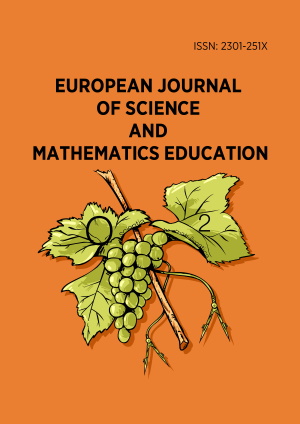Research Article
Music activities as a meaningful context for teaching elementary students mathematics: a quasi-experiment time series design with random assigned control group
More Detail
1 Department of Teacher Education, University of Texas at El Paso, El Paso, U.S.A.* Corresponding Author
European Journal of Science and Mathematics Education, 3(1), January 2015, 45-60, https://doi.org/10.30935/scimath/9420
OPEN ACCESS 3449 Views 2395 Downloads
ABSTRACT
The purpose of the current research was to examine the effects of a sequence of classroom activities that integrated mathematics content with music elements aimed atproviding teachers an alternative approach for teaching mathematics. Two classes ofthird grade students (n=56) from an elementary school in the west coast of the United
States participated in the research. A random assignment pretest-posttest controlgroup design was used to examine students' changes in mathematical ability betweenthe two groups. A quasi-experiment time series design with multiple pretests, midtests and posttests was utilized for investigating the effects of music-mathematics lessonson students' mathematics process ability level. The results demonstrated that theintervention of music-mathematics integrated lessons had statistically significantimprovement on the music group students' mathematical abilities.
CITATION (APA)
An, S. A., & Tillman, D. A. (2015). Music activities as a meaningful context for teaching elementary students mathematics: a quasi-experiment time series design with random assigned control group. European Journal of Science and Mathematics Education, 3(1), 45-60. https://doi.org/10.30935/scimath/9420


 The articles published in this journal are licensed under the CC-BY Creative Commons Attribution International License.
The articles published in this journal are licensed under the CC-BY Creative Commons Attribution International License.